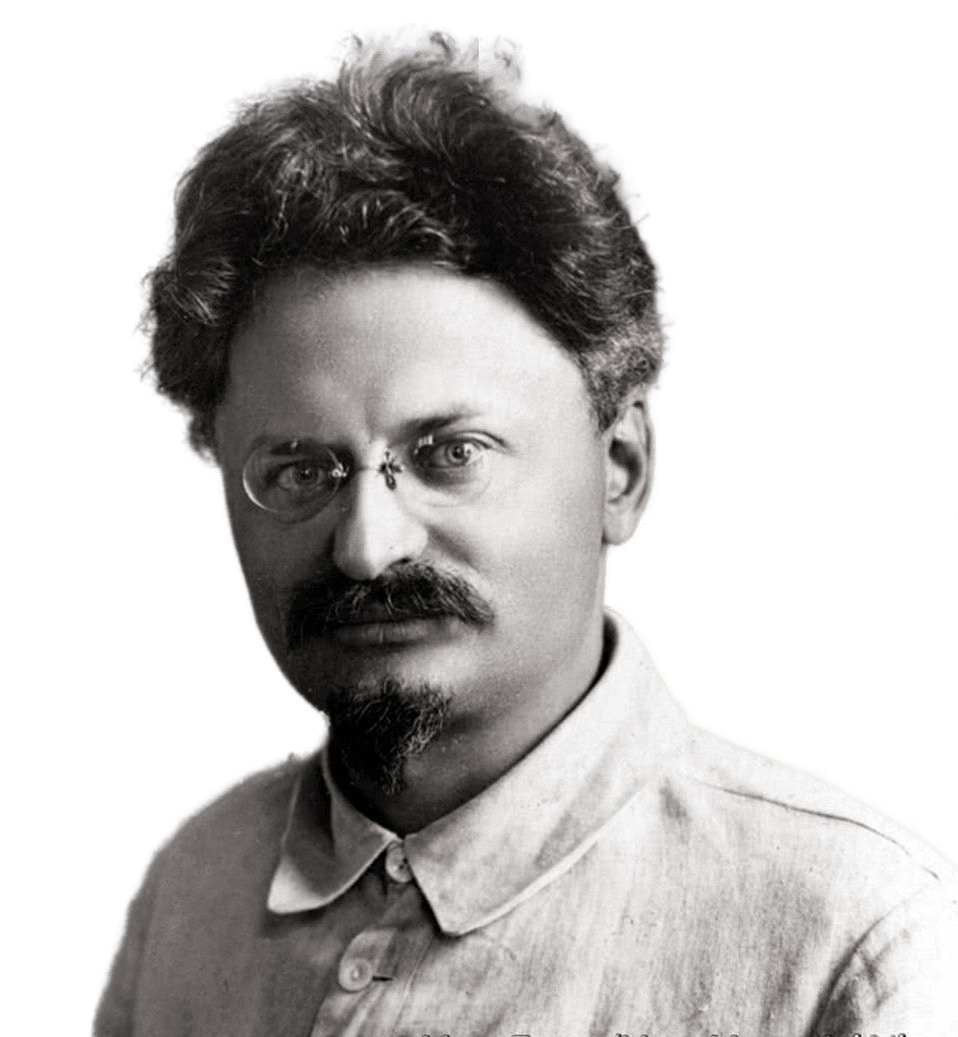
16.12.2022
One of the most famous revolutionaries of the world, Lev Davidovich Bronstein, nicknamed Trotsky (1879-1940) went in his life from exile to the second man in Russia and again to exile, killed by his more successful rival in the struggle for power.
The memory of Leon Trotsky in his homeland has also undergone different twists and turns: from ridicule to complete silence and subsequent attempts to create his cult. Only in the last thirty years has it become possible to objectively discuss this extraordinary, but undoubtedly negative figure for Russia.
The Leader of the October Revolution
Until the late 1980s, the emphasis of Soviet historians, when they wrote about Trotsky, was on his disagreement with Lenin in the period from 1903 to 1917. In Stalin’s time it was never tired of emphasizing that when Trotsky joined the Bolshevik Party in 1917, he did so solely to harm the cause of the revolution and the construction of socialism.
If Trotsky had wanted to do this, it would have cost him nothing to crush the Bolsheviks at the very beginning of the October Revolution, because it was Trotsky who held the key post of chairman of the Petrograd Soviet and who actually led the armed uprising in Petrograd. Lenin was completely uninvolved in the technical side of the seizure of power. He gave only general instructions. Trotsky was in charge of putting them into practice.
Trotsky was not a general sitting at headquarters and giving orders to his subordinates. He did not shy away from personal “black work. For example, learning that the garrison of the Peter and Paul Fortress did not succumb to the convictions of the Bolshevik agitators and remained faithful to the Provisional Government, Trotsky himself rushed there to convince the soldiers. On the behavior of the garrison of the Peter and Paul Fortress depended the success of the raid of the cruiser “Aurora” under the walls of the Winter Palace. In addition, the fortress housed the arsenal of a hundred thousand rifles. Trotsky used his fine qualities of a revolutionary orator. Petropavlovtsy went over to the side of the Bolsheviks, and a hundred thousand rifles were distributed to the Red Guards.
The Man Who Won the Civil War
Trotsky’s prominent role in the organization of the Red Army was traditionally glossed over. After his unsuccessful debut as a diplomat, which ended with his resignation on March 1, 1918, from the post of Commissar for Foreign Affairs, Trotsky willingly accepted an appointment as Commissar for Military and Naval Affairs. This position was soon supplemented by the post of Chairman of the Revolutionary Military Council of the Republic (RVCR). Soviet textbooks often featured this faceless RWSR as the highest governing body of the Red Army during the Civil War, but until the late 1980s it was forbidden to mention that Trotsky headed it.
Being a strictly civilian by birth, upbringing and habits, Trotsky nevertheless showed genuine talent and political flair in military affairs. He did not interfere in strategic matters, leaving them to specialists. It was in his trust in military specialists, “military specialists,” in the Bolshevik terminology – class enemies, that Trotsky’s organizational strategy for building the Red Army consisted.
Unlike many of his Party comrades, Trotsky was a staunch advocate of bringing old-regime officers into the command staff of the proletarian army. But not only did he advocate the use of tsarist generals and officers. Trotsky began to impose the old-regime discipline in the revolutionary army, which was seen by many Bolsheviks as a completely unacceptable thing. But Trotsky insisted on his side and with an iron hand was able to carry out his policy. The results of his work were bitterly recognized by the White
Guard generals themselves in their memoirs, noting that the Russian officers under the Jewish Bronstein in the shortest possible time created a much more combat-ready and disciplined and tactically more competent army than those armies that were created by Russian officers under their, white generals, leadership.




